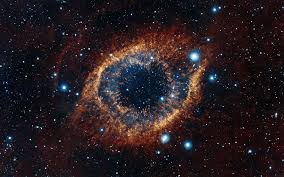Have you ever pondered the complete impossibility of your existence as a finite conscious being?
Think about it.
What are the chances of your arriving at this precise moment of time given the infinite possibilities before and after?
Our existence seems finite. We have vague memory of our beginnings as a sentient creature. We were given a month, date and year of our birth; our first conscious moments arrived at some point in time before that (during the 24th and 28th week of gestation) in our mother’s womb. All indications point to a beginning to our conscious existence and all things with a beginning will eventually end—or at least that is the pattern we can observe in everything in the universe. (Well, everything besides death and taxes, both of those things apparently permanent fixtures…)
But, if we are finite, and time stretches infinitely in both directions from the point of our existence in this present moment, how did we end up here? Why is it not a million, billion or quadrillion quadrillion years before or after this moment of now? There is infinite possibility of it being any moment but now and yet inexplicably here we are contemplating our existence together. How?
I believe the answer could be a matter of perception. While it is true that what we perceive is our reality—there is a vast difference between our individual perception and reality as a whole. For starters, as finite beings, we can only perceive an infinitesimally small portion of the universe we live in and can’t truly imagine anything beyond it. And, beyond that, our perception is often skewed and distorted in ways we are unable to see ourselves.
One thing we do not perceive correctly is the reality that we are inexorably linked to the universe. From our own perspective of consciousness we are something separate—an individual—and apart from everything else in the universe. However, we did not just materialize out of thin air, every part of us was part of the universe long before it became part of us and will probably continue to exist long after our physical bodies die and become worm food. Despite our perception of being something outside of the universe looking in, somehow a unique entity in our mind, we are still one with the universe and can’t be separated from it.
An immaterial soul, a part of us separate from the material universe and undetectable, is not required to explain our consciousness. There is sufficient evidence to suggest that human consciousness is an emergent property of electrical activity in our brain. And still, no matter how much science can explain, there’s a great mystery to our existence, as finite beings, at this time and place.
Timelessness and the divinity of Christ
At risk of being labeled heretic (not that anyone has the right to do that, especially not a Protestant armed with only their own opinion of the Bible and a denominational bias) I will postulate an idea about our consciousness and what it means.
Remember how Jesus turned the “you are gods” of Psalm 82:6 into a defense for his own claim of divinity?
Here’s the reference:
“We are not stoning you for any good work,” they replied, “but for blasphemy, because you, a mere man, claim to be God.”
Jesus answered them, “Is it not written in your Law, ‘I have said you are “gods”’? If he called them ‘gods,’ to whom the word of God came—and Scripture cannot be set aside—what about the one whom the Father set apart as his very own and sent into the world? Why then do you accuse me of blasphemy because I said, ‘I am God’s Son’? (John 10:33-36 NIV)
The interesting thing about the passage Jesus quotes is how it applies to us. If Jesus is using this verse as a defense of his own divinity, then what does that make us? Does receiving the word of God (via the Spirit) give us the right to claim divinity as well?
There seems to be no other logical conclusion besides our being in some way divine. We are told elsewhere that “those led by the Spirit of God are the children of God” (Romans 8:14-17) and “heirs of God and co-heirs with Christ,” which is an astonishing claim. It means that, through adoption, we are and will be fully divine, like Christ.
And this gets even more bizarre when you consider the further implications. We exist in time. However, God exists at the beginning and ending of time simultaneously and thus is outside of time as we perceive it. Therefore, when we complete this process of divinization (or theosis) described throughout Scripture and become one with God, in timeless eternity will we save ourselves before we even existed?
Maybe predestination is our choice?
Only God knows…
So, what does divinization have to do with consciousness?
To exist in eternity future, a timeless infinite future, then one also pre-exist time. In fact, words like “past” or “present” or “future” do not exist in a timeless reality. Something that exists as both infinite and eternal can be (without contradiction) at all points (of space and time) while, at the same time, also at none.
Our linear perception of time comes from a limited perspective of reality and is a perspective that falls apart at the edges of our universe. At the quantum level things become irrational from a time-based perspective; quantum particles borrow energy from the future, they are somehow entangled together across vast swaths of space, and this all strongly suggests there is something “off” about our intuitions.
Consciousness, on one hand, is an emergent property of our physical brain. But it also seems to be more than that or how could we be experiencing the present moment given the infinite possibilities? Time defines our conscious experience and yet our consciousness of time allows us to contemplate timelessness.
To follow after Jesus, take on the divine nature and be “children of God” requires that some part of our being must exist beyond time. The question is, if this is true, do we even exist as a separate consciousness or are we already part of something bigger and divine?
Could our conscious mind, like the individual neurons in a brain that have no awareness of the whole mind, also be individually unaware of our own part in a larger consciousness?
Are we in some mysterious way already timeless and divine?
Are we gods?


We are born, we live a little while, and when we die we (including our consciousness) cease to exist.
What evidence is there to the contrary?
LikeLike
I haven’t died yet so I can’t really know for certain what happens afterwards. But you are free to believe whatever you want to believe… 🙂
LikeLike
I wouldn’t say it’s so much a matter of chosen belief as of lack of belief.
As far as can be known, we humans are primates. Many types of primates (as well as some types of birds) exhibit varying levels of consciousness. How do you draw the line between who is conscious and who is not?
What basis is there for assuming that humans have an eternal soul but monkeys, parrots, and dolphins do not? In the far future, if some other species evolves a level of sentience comparable to ours, will they, too, gain eternal souls?
In light of these questions and others, it seems a bit pretentious and unsubstantiated to think that I will gain eternal life but some other creature across some undefined line of consciousness will not.
What’s your take?
LikeLike
I would not rule out any possibility. I do believe that humanity is probably our best chance for any kind of advancement in consciousness. I’m waiting on quantum computing and some kind of artificial intelligence to be a next level of evolution…
LikeLike
Indeed we are, even today many of those who name the name of Christ out of false humility would rather not admit the existence of that verse. I would be very curious to know when the author was thinking through this subject, as he may be familiar with the concept of our collective conciousness, for is was a subject under my consideration some short time ago. This is an area in which those not under the self imposed constraints of orthodox Christianity(which truth be told is still a grace from the Father) have been free to explore. To illustrate, Jesus said that any that climbs up another way is a theif and a robber the implication being that they may acquire some in some measure what He had to offer albeit not legitimately; to illustrate, one can obtain what seems to be many of the fruits of the Spirit through means other than repentance faith and partakance of the divine nature through Jesus, thus robbing what is legally ( in the spiritual reality that is the real reality) what is only Christ’s to give. ” Be it to you according to YOUR faith” ” what a man sowes…” .In this particularly we are made in His image in that we can operate between the physical and the spiritual plane, a capacity which the angels( the ministering servants) and demons methinks have not. Indeed the rulers of the darkness of this world work ceaselessly to prevent the realization of this from believers. In Him we live and move and have our being , whither can I go from the Spirit He is everywhere since He exist outside of time He can never leave us or forsake us , even watching the sparrow fall to the ground and patiently waiting for us to come to Him
LikeLiked by 1 person
True humility comes to God boldly and fully appreciates the gift of grace by partaking of everything it implies. Those who hold back from embracing this divine promise for fear of God’s wrath are actually doubting His goodness and plan. It is not taking the place of God to seek after the divinity that being a son or daughter of the most high implies. No, that is to follow after our Lord and Savior who told us to do just that. We cannot claim to believe if we are unwilling to aim for the extraordinary ourselves. God has called us all to perfect oneness with Him. There is no conflict with God’s will or cause for concern in this.
LikeLike